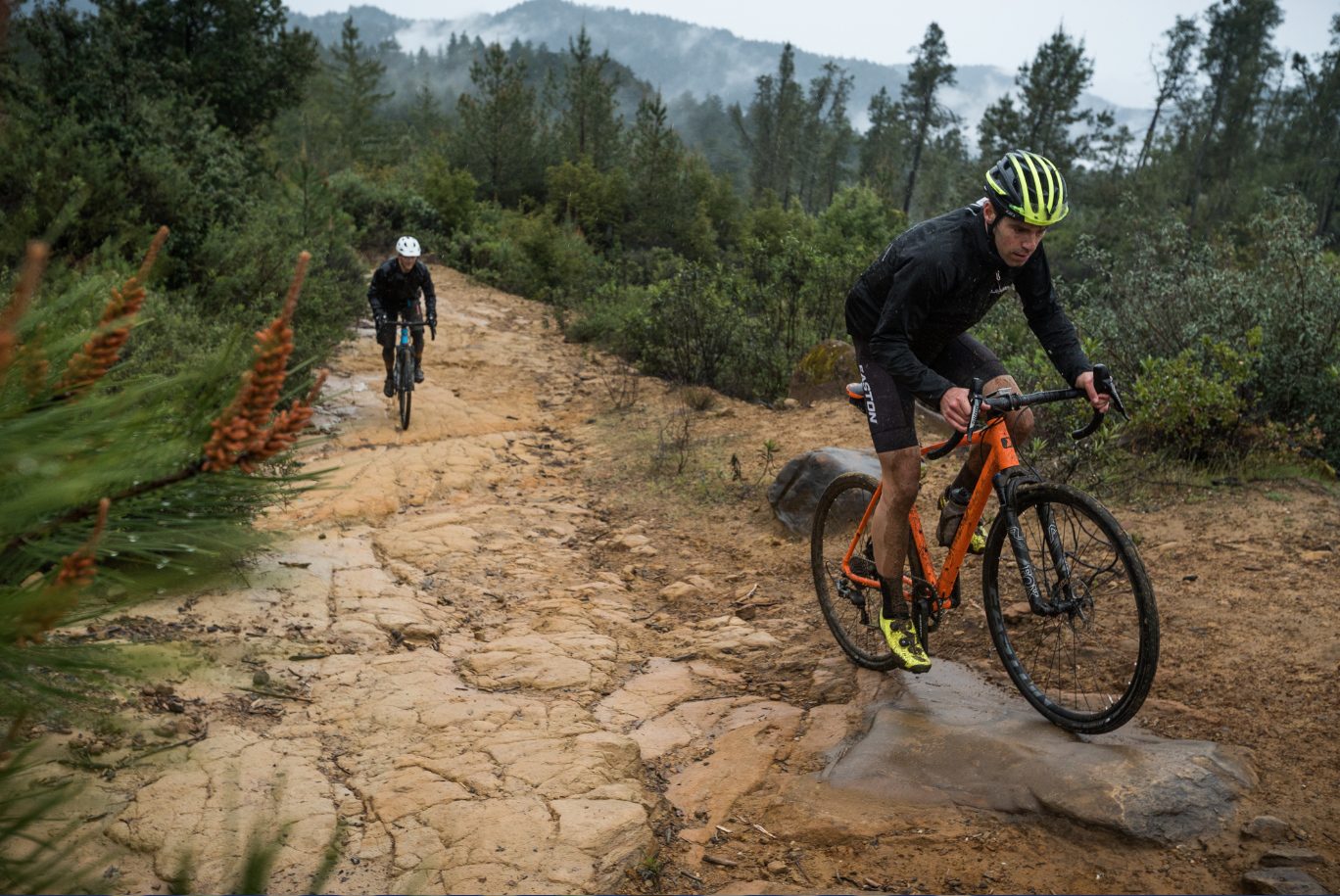A working cyclist’s training plan for a 200-mile gravel race
Coach Elliot Bassett presents a program that even accounts for regular life and its effects on getting fit

by Elliot Bassett

Every training plan should have two objectives: help the athlete shore up his or her major weaknesses ahead of an event and make sure the training adequately matches the demands of the event.
Craig Richey, who is training for the Dirty Kanza 200 in June, will face 200 miles with loads of gravel and roughly 2,000 m of vertical gain. Richey has rarely ridden more than four hours in the past two years and has little experience fuelling for long rides, let alone long races. While he does have a long history of riding and racing at a high level, his recent training has been much less. Eleven hours is Craig’s largest training week of the past three months, with one long ride of three hours.
Perfect prep for Dirty Kanza, right? Maybe not, but bike racing is fickle. You can never be certain you’ll win, but should always prepare to put yourself in the best spot possible. When you do that, good things start to happen. And that is what Craig intends to do.
In the next 11 weeks, Richey has a five-day work trip to Italy, a weeklong work trip to California, his brothers stag and his brother’s wedding. Not ideal. How will we make it work?
We’re going to keep it simple. We will focus on three things: long rides, threshold work and sleeping.
With his schedule, one long ride a week is about as much as we can plan for. Life (that is, stuff that gets in the way of riding) will certainly happen at least once, leaving us 10 rides to play with. Three are already planned. On April 6, he has a 225-km “commute” to his brother’s stag, which is strictly base miles. On April 29, he’ll ride a 91-km mountain bike race with more than 4,000 m of climbing. On May 5, Richey will compete in a 150-km gravel race near Vancouver. He will have five local rides, during which he’ll aiming for four to five and a half hours riding time and 3,000 to 6,000 m of vertical. There will be two training rides between six and a half to eight hours in duration. These rides will have a steady effort. Richey will ride climbs a bit stronger than the rest of the route. The main focus will be experimenting with fuelling protocols. Every ride is a chance to experiment with various gels, drinks and snacks. Richey’s end goal will be getting comfortable eating more than 300 calories an hour and feeling good while he does it. This is old hat for some folks. Craig is not one of those folks.
None of the climbs in Dirty Kanza are very long, but they come often. In the front group, the pace will frequently hit the hardest efforts on the climbs. The higher Craig’s threshold is (whatever definition you choose to use: it’s all applicable here) the less these repeated climbs will take a toll on him, and the longer he can hang around eating his fuel while watching everyone slowly fade away. There are many ways to increase threshold. In the long run, you want to use as many different kinds of workouts as possible so you never get used to any one stimulus (that is, too used to a specific workout)
The core of the training plan is bare bones, no variety. Twice a week, Richey will take the long route home from work on hike bike and aim to climb at threshold or a bit higher (98–104 per cent of threshold) for as long as possible that day. Realistically, this means hill repeats of 3 x 30 minutes. He’ll start at about 20 minutes of total climbing and quickly aim to be climbing for 40–70 minutes in a session. The rest of the ride is warming up, cooling down or descending just to go back up the hill.
Sleep, rest, recovery, one long ride, two threshold rides—the rest of Craig’s training will be easy rides to and from work. He is lucky enough to be able to bike commute about 50 minutes each way. Some days he might extend his commute home by a few minutes. But realistically, he will ride directly to and from work twice a week. No extra fancy workouts. No crazy early wakeups to get in secret training. No sprints, no weight training. He doesn’t have time for those and his body couldn’t handle the load at this point anyway.
I’ll put out the specifics once a week so you can see the progressions in the hill workouts and any changes that occur. Life is bound to happen, and we’ll alter his training to adjust for those stresses.
Elliot Bassett has been Craig Richey’s coach for the past eight years. Bassett has also coached athletes for Ironman triathlons, three of whom have won 12 Ironmans and placed second at the Ironman world championships. He’s guided 30 elite athletes in cyclocross, mountain biking, road cycling, marathon, ultramarathon and triathlon. Follow him on Facebook at Mountain Endurance and on Instagram at @mountainendurance
